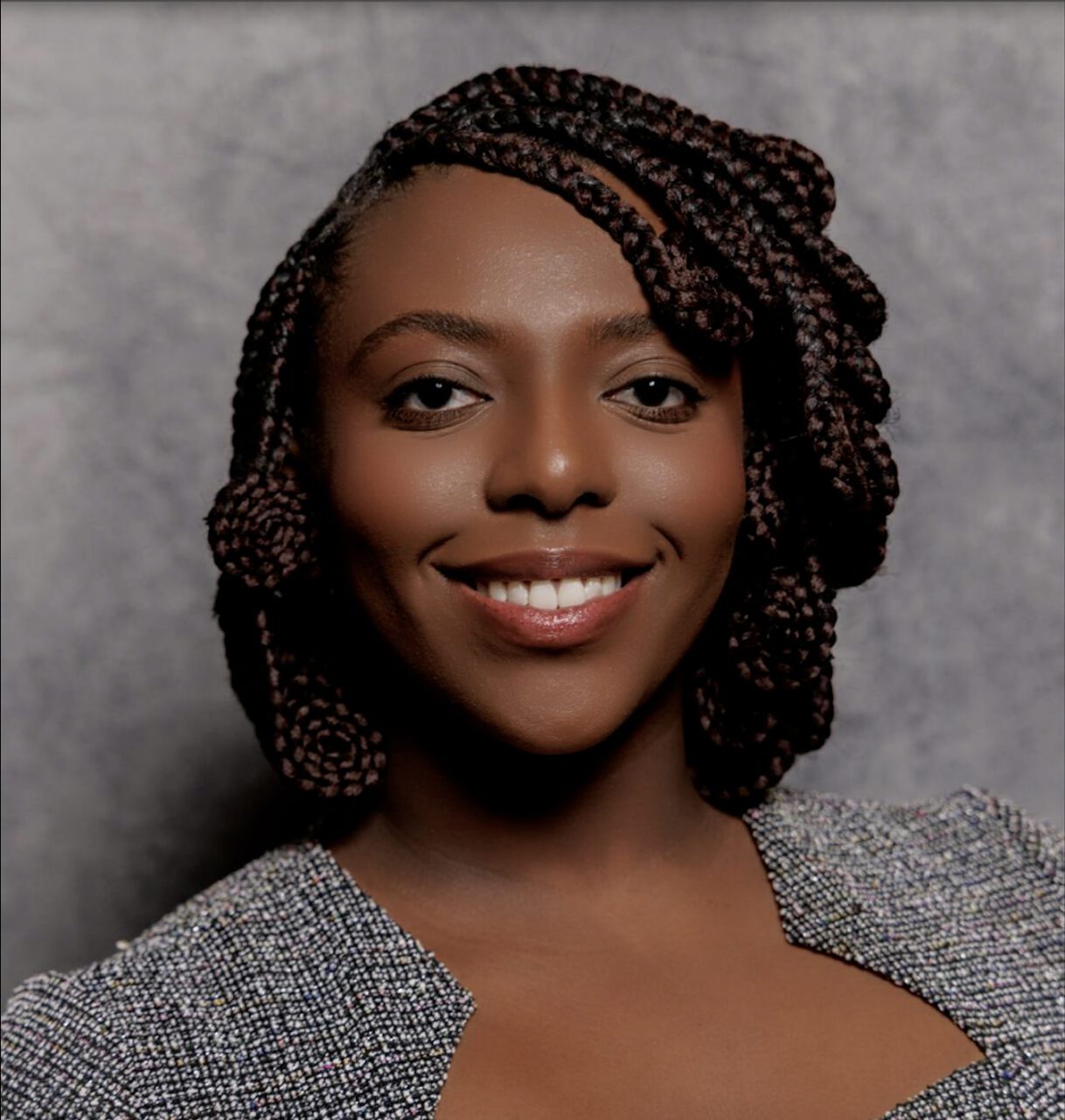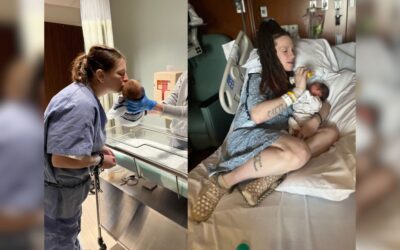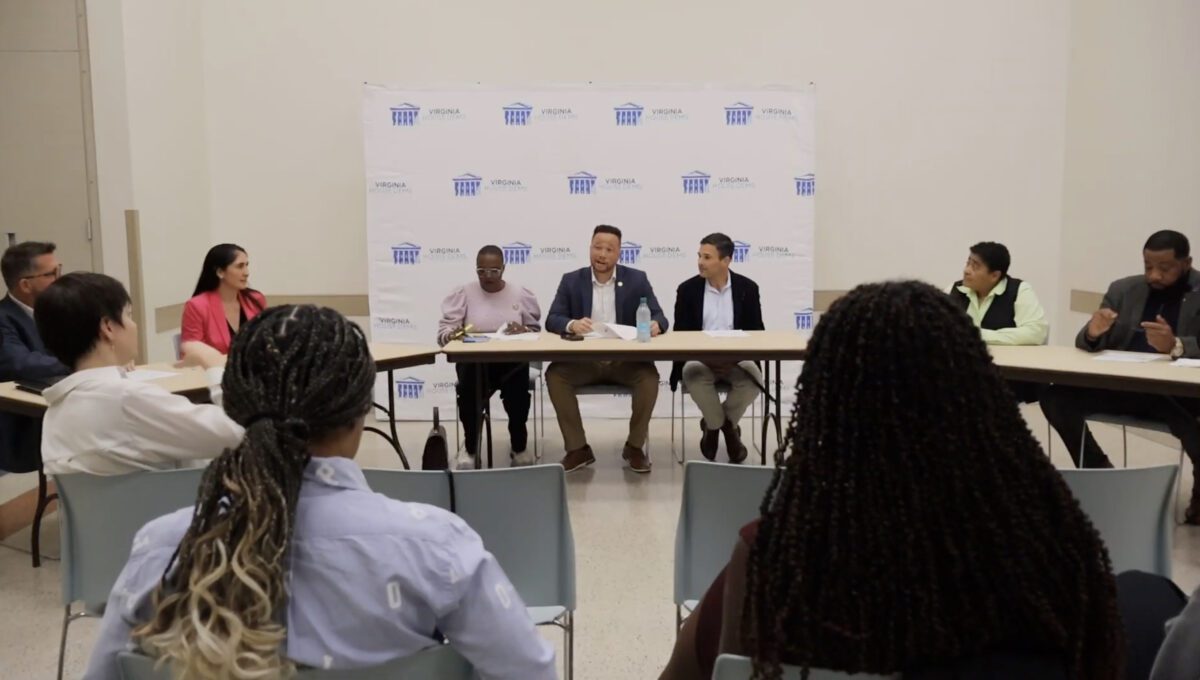
Courtesy Photo: Virginia House Democratic Caucus
At Virginia veterans’ roundtable, leaders warn health care cuts and abortion restrictions could harm service members.
In Virginia Beach this month, a group of veterans, lawmakers, and advocates gathered around one shared concern: how a wave of federal cuts from Republicans’ “One Big Beautiful Bill Act” and a continuing government shutdown could strip away service members’ hard-earned health care and autonomy.
At the event hosted by the Virginia House Democratic Caucus, Delegates Michael Feggans (D-Virginia Beach County), Dan Helmer (D-Fairfax), and Jackie Glass (D-Norfolk), all military veterans themselves, met with Norfolk councilman and Air Force veteran JP Paige to discuss what they called mounting threats to veterans’ health care access. They were joined by Retired Master Chief Petty Officer Susan Hippen, Sentra Health Senior Director of Government & Community Relations Andy Stephenson, and Jamie Lockhart, executive director of Planned Parenthood Advocates of Virginia.
RELATED: ‘Everybody’s getting something, except us’: VA debate over AI heats up in the Commonwealth
While the roundtable touched on issues ranging from TRICARE costs and mental health support to delayed appointments at the VA, the discussion repeatedly returned to one topic: reproductive rights and how new federal policies could hinder basic care for women who have served.
Federal fallout
Feggans, a retired Air Force health care administrator, said the federal government shutdown and the passage of Trump’s “One Big Beautiful Bill” are not only halting paychecks for federal workers, but also cutting into veterans’ health care and livelihoods.
“We’re seeing a federal government who is purposely, in many ways, trying to pull funding from many organizations that provide funding for women veterans and [other] veterans,” Feggans said.
“As someone who is currently in the VA system right now, I can tell you the doctors, nurses, technicians, and administrators, they’re doing the very best that they can. Unfortunately though, they’re currently working in a system…that their experiences and capabilities are being curtailed by a federal government and sometimes by a state government that doesn’t support them that way.”
Feggans also called the Trump presidency “the most anti-veteran administration in recent memory,” arguing that decisions in Washington are reshaping how veterans receive care in every part of the system, from the VA to local clinics.
On Oct. 1, the federal government officially entered a partial shutdown after Congress failed to pass a new spending bill. The resulting lapse in funding has paused paychecks for thousands of employees and federal contractors, delayed cemetery services and health benefits, and disrupted agency partnerships that supply veterans with support during transitional periods, career outreach, medical equipment, and prescription deliveries.
READ MORE: Virginia Dems rush to support federal workers during government shutdown
But beyond paychecks and paperwork, Feggans said, the steepest consequences are showing up in reproductive health.
Planned Parenthood’s role in veteran care
Planned Parenthood of Virginia operates three centers in Chesapeake, Virginia Beach, and Hampton—though the Hampton location is listed as “temporarily closed” on Google. Lockhart said veterans often turn to their clinics when VA appointments take months or when they want to keep reproductive care private.
Trump’s “One Big Beautiful Bill” included a federal provision barring Medicaid reimbursements to Planned Parenthood. As a result, clinics that once received government reimbursement for preventive services like birth control, STI testing, and cancer screenings can no longer bill Medicaid for that care. Instead, patients must pay out-of-pocket or forgo treatments altogether.
Lockhart said Planned Parenthood was the only organization singled out for defunding efforts and that the removal of Medicaid reimbursements for Planned Parenthood under the bill is already affecting veterans who rely on its clinics for non-abortion care.
READ MORE: At a Virginia roundtable, advocates warn contraception rights are at risk
She also warned of a proposed VA rule that would prohibit VA clinicians from counseling or referring veteran patients for abortion—even in cases of rape, incest, or when the patient’s life is at risk.
“I think it goes without saying that those who fight for our freedom deserve the ability to have the freedom over their own health care decisions,” Lockhart said. “We’re at a really tough time in the compounding of factors.”
The consequences of such a rule reach beyond the VA, a point Del. Helmer drove home.
“When you raise your right hand and join the military, you expect to have the same rights across the United States of America,” he said. “You are going to protect your country, and in return, your country is going to protect you.”
He said that promise is now broken for some.
“Today, a young woman who raises her right hand and swears an oath to defend the Constitution, can be sent all over the country to state in which is she is a victim of rape or some other assault,” Helmer continued. “She is unable to get access to health care.”
Virginia’s unique role
Virginia is home to the largest concentration of women veterans in the country, comprising nearly 16% of the state’s veteran population according to the Virginia Department of Veterans Services’ 2022 Annual Report. This reflects the state’s dense network of military installations across Hampton Roads, Northern Virginia, and Richmond.
That distinction, lawmakers said, makes the Commonwealth’s health policies even more consequential. With more women veterans than anywhere else, Virginia’s reproductive health care laws can influence the experiences of thousands of veterans stationed here.
“There are a lot of individuals who might not even realize that a lot of women veterans receive care at your organization,” Feggans said to Lockhart. “…As we’re seeing a federal government who is purposely, in many ways, trying to pull funding from organizations that provide care for women veterans.”
‘We could not count on the VA’
Del. Jackie Glass, a retired Navy cryptologic technician, said Planned Parenthood filled critical gaps for her and her peers when the VA could not.
“When I was stationed in San Diego, Planned Parenthood was the place for us,” she said. “We could not count on the VA. I didn’t even think of Planned Parenthood as a place where you got an abortion.”
She said that loss of access affects not just individuals but entire units.
“When I think about family planning, when you choose to do that in the military, it is not just about that woman service nowhere, it is about that unit,” Glass said. “And so a loss of Planned Parenthood, it doesn’t just affect the woman service partner, it can affect her partner and the decision that they’re able to make in their career, long term.”
Retired Master Chief Susan Hippen agreed to Glass’ point.
“If I had not had autonomy over my life,” she said, “I don’t know that I could have had career success.”
Beyond reproductive care
While reproductive rights dominated the conversation, speakers at the roundtable said federal decisions threatening abortion and birth control access are simultaneously straining every other corner of veterans’ care, from mental health services to housing supports and rising TRICARE costs.
For many on the panel, the connection was clear: When veterans can’t make decisions about their own health, it ripples into every other part of their lives. Loss of autonomy, they said, leads to lost stability: financial, emotional, and physical.
With a Democratic majority of only one seat in the Virginia House of Delegates and the election looming, Helmer warned that the state’s status as a “safe haven” for reproductive care could quickly be erased.
RELATED: As southern states ban abortion, thousands of patients head north—to Virginia
“On Nov. 5, we could find ourselves in the Commonwealth [with] active duty service members [who] don’t have access to the care they have earned,” he said. “In which they don’t have the rights simply because they are stationed in Virginia. I think that’s unacceptable.”
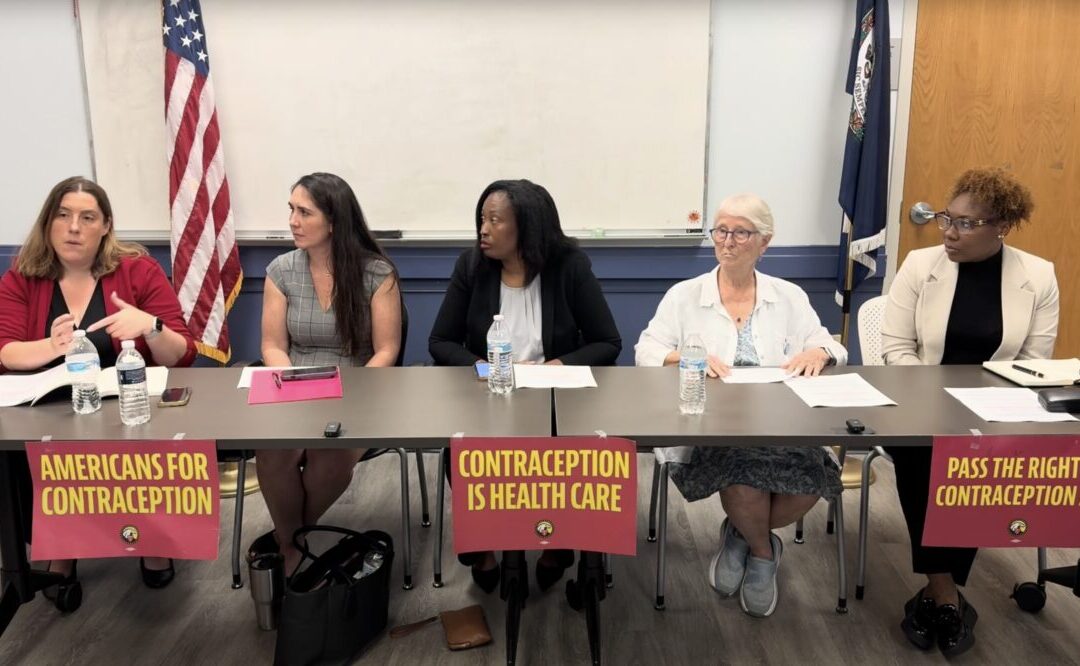
At a Virginia roundtable, advocates warn contraception rights are at risk
The event spotlighted Virginia’s stalled Right to Contraception Act and the broader fight against policies that could strip thousands of Virginians...
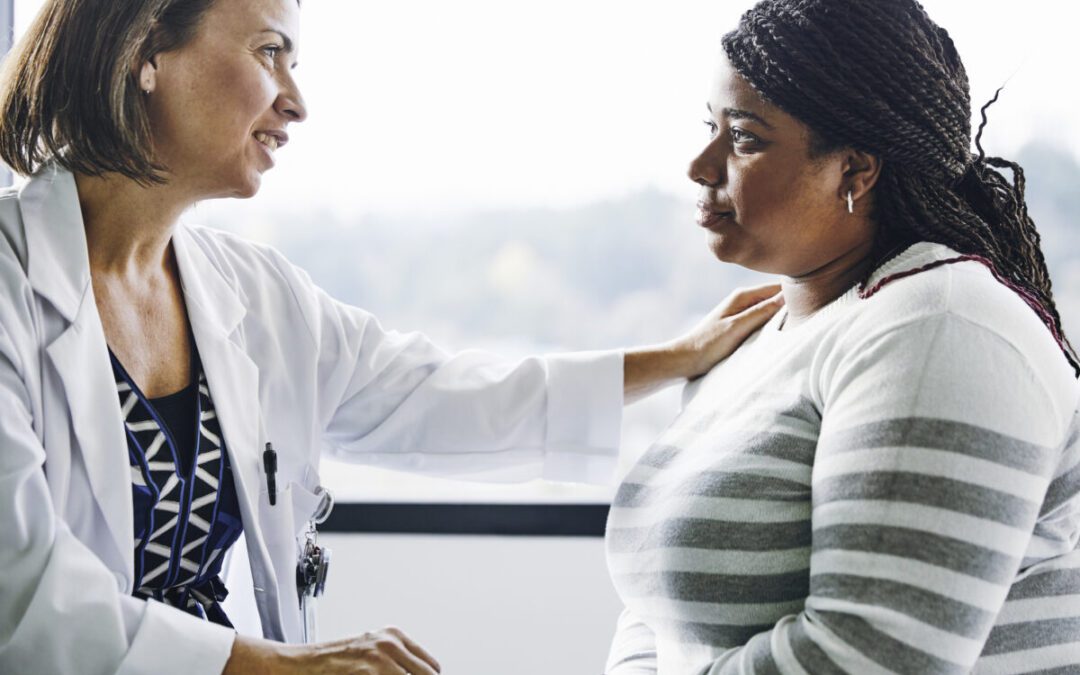
In her own words: Why this Texas physician now helps women in Virginia
Dr. Lou Rubino is just one of many physicians who’ve left Texas as a result of the state’s multiple abortion bans—laws that prevent doctors from...
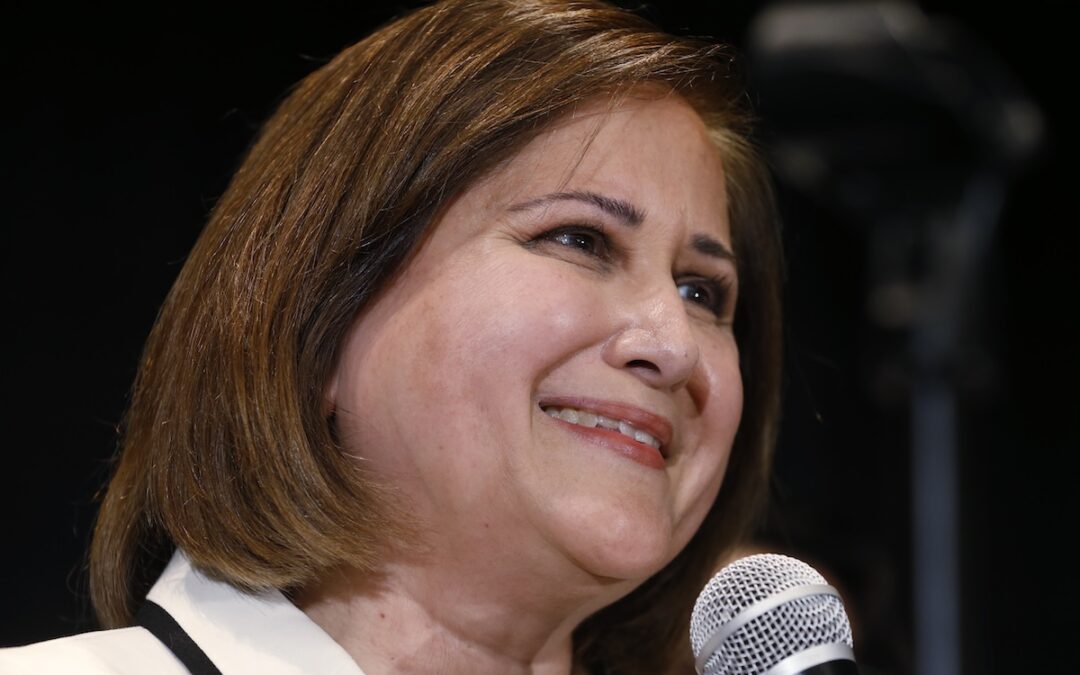
Ghazala Hashmi speaks out: ‘I’m so thankful my doctor could save my life’
The Democrat running for lieutenant governor of Virginia reveals she had two dangerous miscarriages—and pledges to protect reproductive rights for...
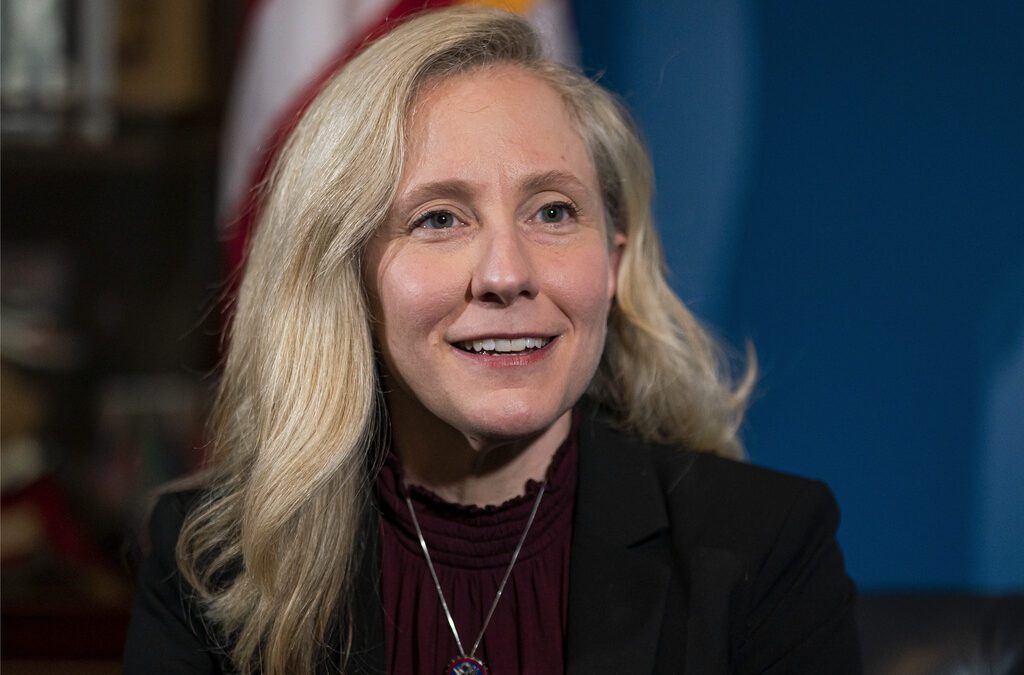
Spanberger makes reproductive rights a cornerstone of her run for governor
She's pledging to defend contraception access and expand abortion protections. Virginians got to learn a little more about the Democrat running for...
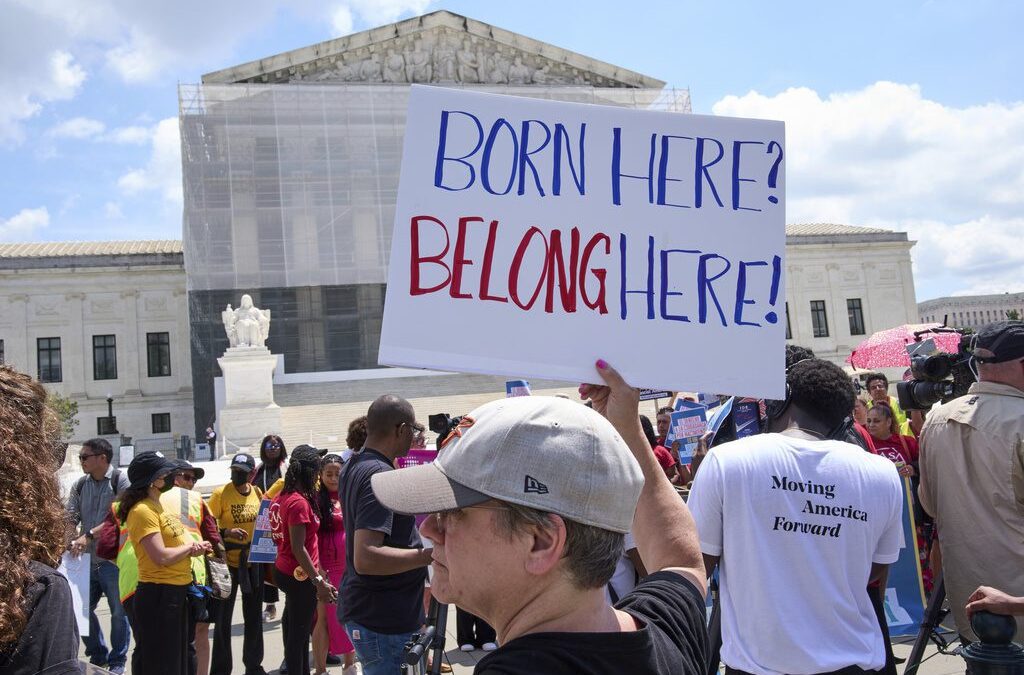
Supreme Court limits nationwide injunctions, but fate of Trump birthright citizenship order unclear
WASHINGTON (AP) — A divided Supreme Court on Friday ruled that individual judges lack the authority to grant nationwide injunctions, but the...
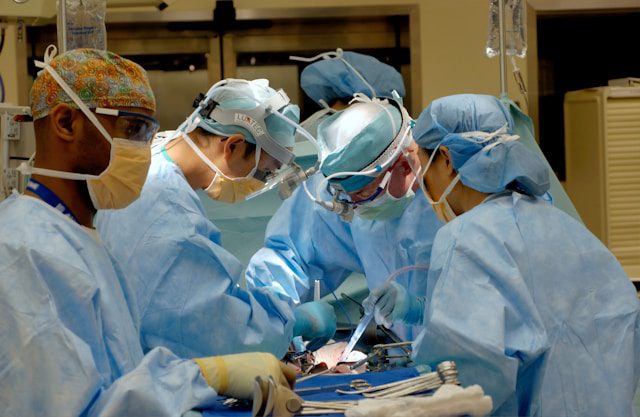
Several hospitals in rural Virginia are at risk of closing if Trump’s ‘big beautiful bill’ passes
Studies reveal that at least half a dozen rural hospitals and health centers in Virginia will be forced to close their doors if the Trump...

